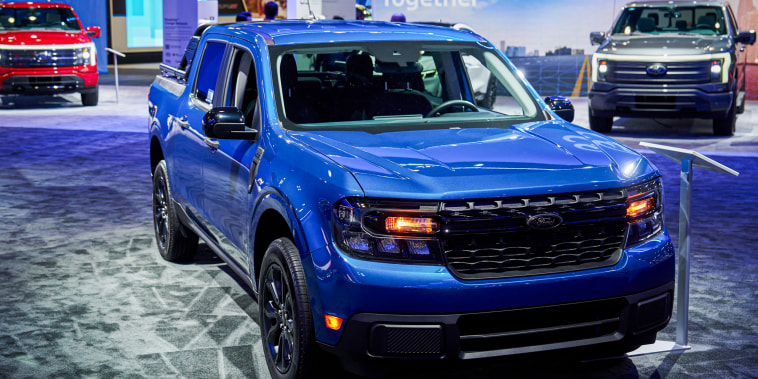Ford’s Decision to Delay All-Electric SUV in Favor of Hybrid Vehicles by 2030
The automotive industry is experiencing a significant shift towards electric vehicles (EVs) as manufacturers race to meet the global demand for more sustainable transportation options. Ford, a renowned American automaker, has been at the forefront of this transition, with plans to electrify its lineup by 2030. However, a recent decision by the company to delay the release of its all-electric SUV in favor of focusing on offering hybrid vehicles across its lineup has sparked discussions and raised questions about the company’s strategy and commitment to sustainable mobility.
Ford’s decision to delay the launch of its all-electric SUV is a strategic move aimed at accelerating the adoption of hybrid vehicles in the market. By focusing on offering a variety of hybrid options across its lineup, Ford aims to cater to the diverse needs and preferences of customers who may not be ready to make the full transition to electric vehicles. This approach allows Ford to gradually introduce customers to the benefits of electrified vehicles while also ensuring that they have a range of options to choose from.
While some critics may view Ford’s decision as a step back in its electrification efforts, others see it as a smart and pragmatic move that aligns with the current market trends. The demand for hybrid vehicles has been steadily increasing as consumers look for more fuel-efficient and environmentally friendly transportation solutions. By prioritizing hybrid offerings, Ford can tap into this growing market segment and establish itself as a leader in the electrified vehicle space.
Moreover, focusing on hybrid vehicles allows Ford to leverage its existing technology and infrastructure, enabling a smoother transition towards full electrification in the future. By investing in hybrid technologies and expanding its hybrid lineup, Ford can develop valuable expertise and experience that will be crucial in the development of future electric vehicles. This approach also enables Ford to manage the challenges associated with electric vehicle adoption, such as charging infrastructure and battery technology, more effectively.
Ford’s decision to delay its all-electric SUV in favor of offering hybrid vehicles reflects a comprehensive and forward-thinking approach to electrification. By strategically balancing its electric and hybrid offerings, Ford can maximize its market impact and ensure a smooth and successful transition towards a more sustainable future. As the automotive industry continues to evolve, Ford’s commitment to innovation and sustainability will be key in shaping the future of mobility and driving positive change in the industry.



























